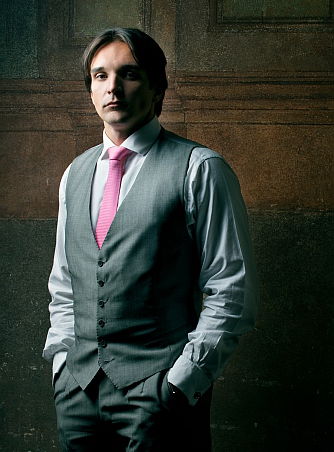Adam Plachetka was educated at the conservatory in his native town of Prague. In addition to his many national competition victories, Adam won First Prize at the Antonín Dvořákʼs International Vocal Competition.
In 2005 he made his debut at the National Theatre in Prague, since when he has appeared in Prague as Don Giovanni, Figaro (Le nozze di Figaro), Nardo (La finta giardiniera), Argante (Rinaldo) and Guglielmo (Così fan tutte), among others.
In september 2010 Adam became a member of the Ensemble of the Wiener Staatsoper. After his debut as Schaunard (La bohéme), he moved on to roles such as Melisso (Alcina), Don Giovanni, Dulcamara (Lʼelisir dʼamore), Figaro, Guglielmo, Publio (La clemenza di Tito), Mustafá (LʼItaliana in Algeri) and Alidoro (La Cenerentola).
Adamʼs engagements include appearances at the Salzburger Festspiele, Bayerische Staatsoper Munich, Pražské jaro, Théâtre Royal de la Monnaie in Bruxelles, Royal Opera House Covent Garden in London, Musikverein in Vienna, Festpielhaus Baden-Baden, Glyndebourne Festival, Deutsche Oper and Deutsche Staatsoper Berlin, Carnegie Hall in New York, Teatro alla Scala in Milan, Wigmore Hall in London and at the Metropolitan Opera in New York.
He has taken part in recordings for Arte, Arthaus Musik, Česká televize, Český rozhlas, Deutsche Grammophon, Mezzo, Naxos, Orfeo, ORF and Supraphon.
Adam performs under the baton of such conductors as Alain Altinoglu, Marco Armiliato, Daniel Barenboim, Ivor Bolton, Bruno Campanella, John Fiore, Asher Fisch, Valery Gergiev, Friedrich Haider, Daniel Harding, Patrick Lange, Louis Langrée, Marc Minkowski, Riccardo Muti, John Nelson, Tomáš Netopil, Yannick Nézet-Séguin, Robin Ticciati or Franz Welser-Möst.



